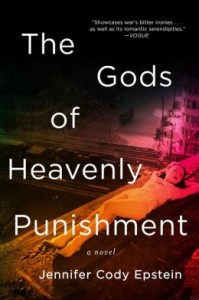About the book Becoming Josephine 
Paperback: 320 pages
Publisher: Plume (December 31, 2013)
Rose Tascher sails from her Martinique plantation to Paris to trade her Creole black magic culture for love and adventure. She arrives exultant to follow her dreams of attending Court with Alexandre, her elegant aristocrat and soldier husband. But Alexandre dashes her hopes and abandons her amid the tumult of the French Revolution.
Through her savoir faire, Rose secures her footing in high society, reveling in handsome men and glitzy balls—until the heads of her friends begin to roll.
After narrowly escaping death in the blood-drenched cells of Les Carmes prison, she reinvents herself as Josephine, a socialite of status and power. Yet her youth is fading, and Josephine must choose between a precarious independence and the love of an awkward suitor. Little does she know, he would become the most powerful man of his century- Napoleon Bonaparte.
Becoming Josephine is a novel of one woman’s journey to find eternal love and stability, and ultimately to find herself.
Buy, read, and discuss Becoming Josephine
Amazon | Barnes & Noble | Books-a-Million | Goodreads
About the author, Heather Webb 
Heather Webb is the author of historical novels Becoming Josephine and the forthcoming Rodin’s Lover (Plume/Penguin 2015).
A freelance editor and blogger, she spends oodles of time helping writers hone their skills—something she adores. You may find her twittering @msheatherwebb or contributing to her favorite award-winning sites Writer Unboxed and Romance University. In addition, she is a member of The Historical Novel Society.
Connect with Heather
My Thoughts
Writing about an historical figure is never easy. The author has to balance the truth of history with the requirements of a good story, and still present readers with something that feels believable.
Heather Webb did that – and more – with Becoming Josephine.
From vivid descriptions to beautiful dialogue, from politics and intrigue to growth and romance, she has given us a glimpse at the woman often referred to as “Napoleon’s Cleopatra.”
In the tale of a girl called Rose who develops into a strong woman known as Josephine, we see not just the person from our schoolbooks, but a real woman, who starts out timid, cautious, and out of place, and, after some triumphs and other incidents where merely surviving is enough, ends up confident, strong, and a force to be reckoned with.
While I loved Rose/Josephine and Napoleon as characters, I liked a lot of the supporting characters as well. Rose’s first husband, Alexandre, made me want to punch him in the nose a lot, but then, he was supposed to. Fanny surprised me, because I wasn’t expecting a French aristocrat to talk about the rights of women or the plight of slaves.
Overall, this story could have been a lush epic or it could have been a clever romance set against the French Revolution and Reign of Terror, but instead, Heather Webb has given us something that is both, and neither. It’s a romantic historical epic with clever dialogue and lush clothing, yes, but it’s also a hard look at the politics of the day, and what it means to truly come into your own as a woman and a person.
Goes well with Roasted chicken, garlic crusted red potatoes, salad, and a glass of chardonnay.
This review is part of a blog tour sponsored by TLC Book Tours. For more information, and the complete list of tour stops, click HERE.











